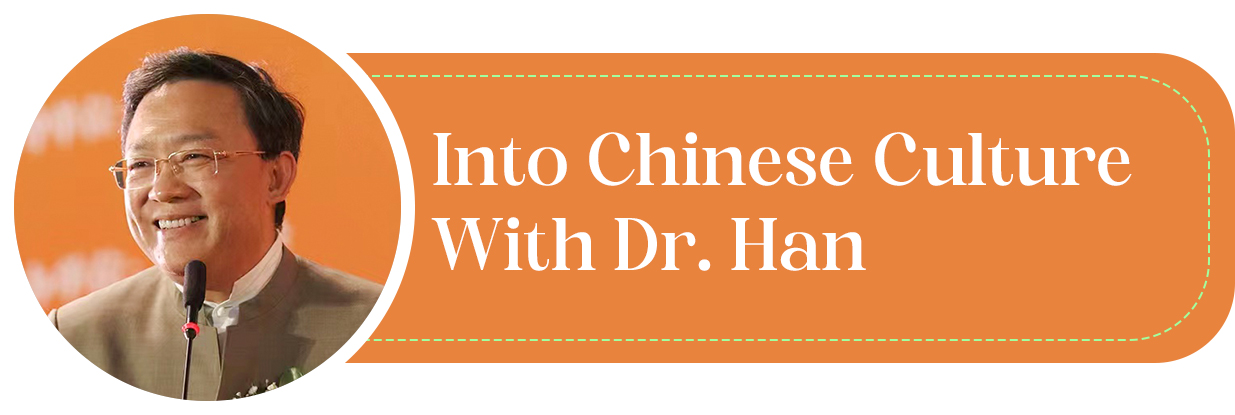Treat others as you want to be treated
Writer: Han Wangxi | Editor: Liu Minxia | From: Shenzhen Daily

Editor's Note:
Traditional culture passes shared values from one generation to the next. From its classical philosophy to fascinating customs, China has a rich and colorful culture. Dr. Han Wangxi, a scholar of history, culture, art, Confucianism and philosophy, is known for his dedication to promoting traditional Chinese culture among the general public and the cultural exchange between China and the rest of the world. This "Into Chinese Culture With Dr. Han" column is to provide critical insight into Chinese culture that has spanned thousands of years.
Dr. Han holds a Ph.D. degree from Renmin University of China, was a visiting scholar at The Chinese University of Hong Kong, and serves as chairman of the Shenzhen Confucian Culture Research Association.
Dr. Han has given lectures on Chinese culture at numerous domestic universities since 2015 and on Chinese radio and TV programs since 2005. He also wrote several books and penned "Ode to Humanity," which was later adapted into a symphony about Confucian culture. The symphony was performed Sept. 21, 2013 at the UNESCO Headquarters in Paris to mark the International Day of Peace. For decades, Dr. Han has been dedicated to the overseas promotion of Chinese culture.
Tolerance is particularly important in modern society. We need to allow different opinions and ideas and try to make sense of them. We need to be kind and just, respect fellow human beings and help them when we can.
As President Xi Jinping has pointed out, "The Chinese civilization has been known for its tolerance since ancient times; exchanging with and learning from other cultures gives the Chinese culture its vitality." We need to embrace other cultures with an open mind, yet have careful judgment, so that we can learn the good parts and enrich our own culture.
The Chinese cherish such values as benevolence, people-first, credibility, justice and living in harmony, which are also universal. All humanity embraces peace, progress, justice, equality, democracy and freedom, in the East as in the West. It's a universal aspiration to enjoy law-guaranteed freedom in social interactions and business endeavors, to be treated fairly and with respect, to cooperate and to prosper together.
We should try to appreciate various cultures, and learn their essence so that Chinese culture will evolve and progress. It certainly takes careful study to make a distinction between the good and the bad when we learn from other cultures.
The Chinese idea of tolerance implies a contrast of strict self-discipline against empathy and lenience toward others. An ideal Chinese is always modest, prudent, just and upright. He or she is never jealous of those who are more talented, nor would he or she bully those who are less strong. Tolerance means showing respect, care and appreciation toward others.
Tolerance, different from the appeasement of evil, is based on upholding justice. Tolerance derives from benevolence, which, in simple terms, means loving and caring for other people. Only those with a caring heart will respect, make allowances for and forgive others.
Confucius said, "If you want to make a stand, help others make a stand; if you want to reach your goals, help others reach their goals; consider yourself and treat others accordingly, as this is how you become benevolent." Zigong, a disciple of Confucius, asked his teacher, "Is there a word that I can practice as the motto of my life?" And Confucius replied, "That word is 'tolerance.' Always treat others as you want to be treated."
The idea of being tolerant and willing to help is the cornerstone of Chinese ethics.
The Analects recorded a dialogue between two disciples of Confucius. Sima Niu said, "Unlike the others, I have no brother." Zixia replied, "If you perform your duties carefully without a mistake, and treat others with good manners and respect, then all people across the country can be your brothers. Then what's the point of worrying that you have no biological brother?"
Mencius also said, "A man of virtue always keeps in his mind benevolence and ethics. A loving person will always be loved, and a respectful person respected." A caring person is sure to be treated with responses of love.
Tolerance and living in harmony form the core values of Chinese culture, and also reflect the universal values of humanity.
(Translated by Debra Li)